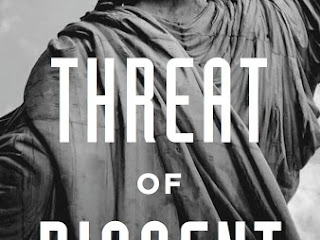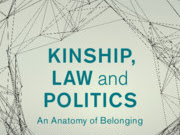[We have the following call for papers. DRE]
Legal Response to Mass Migration Between the 19th Century and the WWII
Confronted with mass migration, since the mid-19th century Western legal culture was forced to face migrants not just as a sum of individuals, but as a phenomenon demanding new legal concepts and mechanisms appropriate to govern and regulate groups and collective subjects. European migrants moving towards colonies and the East led to a reconceptualization of traditional international law doctrines on state sovereignty in order to de-territorialize Western citizens who occurred to be in the Eastern countries, freeing them from the imperium of the local authority and entrusting them to their own consular courts. Whereas immigration into Western countries led to the adoption of protective legal strategies and exclusion mechanisms to bar the dangerous others, emigration of European citizens towards colonized regions and Eastern countries prompted the elaboration of exceptional safeguards and privileges for ‘civilizing’ migrants. The new challenges of mobility led jurists and legislators to reshape the peculiarity of ius migrandi through terminological as well as conceptual revisions (e.g. the notions of citizenship, sovereignty, territorial state, undesirable and dangerous alien), the elaboration of new disciplines such as international labor law and international migration law, and the creation of special administrative bodies or jurisdictions (e.g. immigration officers; board of inspectors; consular courts; inspectors of emigration; arbitral commissions for emigration).
The Legal History and Mass Migration project (PRIN 2017) invites proposals for papers relating to the theme of the juridical response to mass migration between the mid-19th century and WWII. Papers can be based on different methodologies and may refer to a broad variety of subjects, including, by way of example:
- application of methodologies such as global legal history, comparative legal history, critical analysis of law to the study of migration issues;
- relationship between local rules and international migration law;
- tensions between human rights’ recognition and border control policies;
- non-Western legal approaches to migration issues;
- construction of legal discourses, theories, justifications to support, contrast, govern, or limit mass migration;
- models of citizenship and integration or exclusion of alien immigrants in different countries;
- role of case law and/or resort to special tribunals with jurisdiction in migration issues as means of departing from ordinary rules and constitutional protections;
- institutional and informal mechanisms (such as ‘soft law’, role of unions or charitable institutions, nets of assistance of national citizens abroad etc.) adopted to deal with mass migration problems in different countries of both departure and destination;
- impact of mass migration on national and international labour law;
- racial paradigms and immigration laws;
- local/global economic impact of migration and its legal regulation;
- exploitation of criminal law concepts, discourses, practices to stir the public conviction about the social danger of mass migration
Proposals for papers are due by 30 March 2021 and should be submitted by e-mail at legalhistoryandmassmigration@gmail.com in Word format, following this order: (a) author(s); (b) affiliation; (c) e-mail address; (d) title of abstract; (e) body of abstract (apx 350 words). Accepted papers will be presented at an international conference which will be held at the University of Naples in December 2021.
Support for selected participants: funding for travel expenses and accommodation may be available. Please indicate with your paper proposal if you would like to be considered for a support, and if so, your expected expenses. All funding decisions will be made independently of paper acceptance.
Papers and pre-circulation: Please note that the conference panels will be structured around a short summary of speakers’ pre-circulated papers, followed by more extended discussion. It is our intention that accepted speakers will submit papers of no more than 4,000 words for circulation by Friday 22 October 2021.
For general inquiries, please email: info@legalhistoryandmassmigration.com
Conference Committee: Luigi Nuzzo (University of Salento), Michele Pifferi (University of Ferrara), Giuseppe Speciale (University of Catania), Cristina Vano (University of Naples Federico II).





